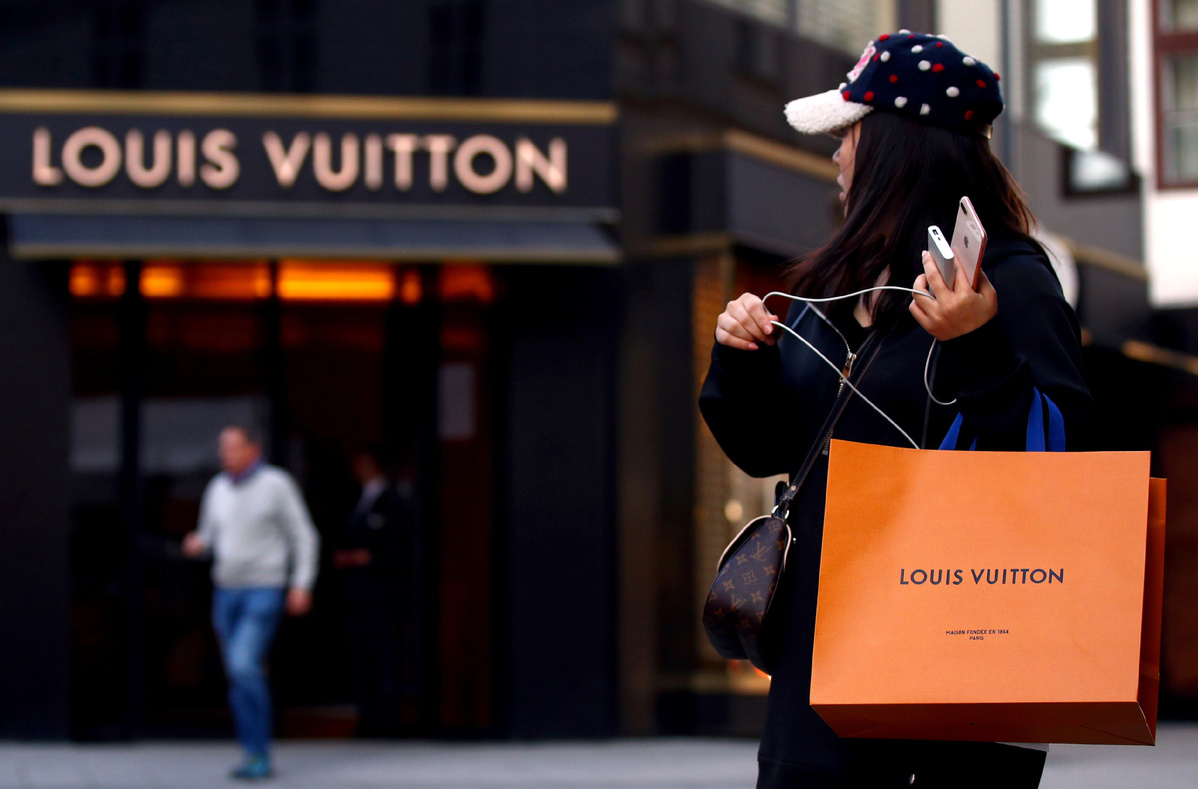Luxury consumption expected to bounce back after outbreak ends


Despite growth driven by online purchases and local consumption in 2019, the outlook for luxury sectors in China this year has been less rosy, with a distinct increase in the number of consumers planning to spend less, and the negative impact brought by the outbreak of the novel coronavirus, according to a survey.
"This past year was marked by optimistic growth. Online purchases and local consumption have become key growth engines for the Chinese luxury market," said Gao Ming, senior vice-president and managing director, Luxury Practice China, Ruder Finn Group, which jointly released the 2020 China Luxury Forecast with Consumer Search Group, one of Asia's most prominent, leading market research groups.
"In addition, as the market gravitates toward lower-tier regions after a decade of development, third-and-lower-tier cities have shown strong performance and great purchasing power."
Against the backdrop of China's economic slowdown, ongoing trade friction and regional challenges, the appetite for luxury items among consumers in these two regions has turned less optimistic, according to the report.
While 44 percent of respondents on the mainland are planning to spend more during the next 12 months – increases similar to those recorded in 2019 – another 10 percent said that they plan to spend less during the same period. This marks a distinct change from the 6 percent who said they planned to spend less last year.
Compared with last year, the proportion of consumers planning to spend less during the next 12 months is higher in almost every product category, except beauty and cosmetics, on the Chinese mainland. More consumers will spend less on automobiles, watches, handbags and electronics.
The outbreak of the novel coronavirus epidemic early in the year dealt an even greater blow to China's retail business, domestic consumption and consumer confidence, creating additional challenges for the luxury market in 2020, said the report.
But the writers of the report believe that the epidemic will pass and luxury spending will continue to rise in the next 12 months.
"There will be a rebound of consumption once the outbreak is contained, but the scale of the rebound is hard to predict so far," said Gao, suggesting brands plan ahead and focus more on online marketing strategies and omni-channel integration to adapt to current situations.
The 2020 China Luxury Forecast surveyed 2,100 consumers on the Chinese mainland from the largest, first-tier cities to third and-lower-tier cities, as well as in Hong Kong. The survey involves 1,599 respondents living on the Chinese mainland and 501 in Hong Kong. Their average annual household income was 1,358,040 yuan ($193,637) on the mainland and HK$997,360 in Hong Kong. The survey was conducted in December 2019.
Over the past 12 months, consumers on the mainland surveyed spent on average about 330,400 yuan on luxury items, while consumers in Hong Kong spent about HK$167,400.
It is particularly interesting to note that consumers in the third and-lower-tier cities spent about 393,900 yuan last year, more than the 344,100 yuan spent among those living in first-tier cities and 275,000 yuan in second-tier cities.
Lower-tier cities enjoy strong purchasing power and will provide opportunities and future impetus to the development of China's luxury market, according to the survey.
Luxury clothing and jewelry remained the top categories in terms of luxury goods purchased in 2019 in both the mainland and Hong Kong.
The survey shows that young consumers are making their first luxury goods purchases at an earlier age than ever in China.
On average, Generation Z consumers between the ages of 21 and 25 generally bought their first luxury item no later than at 20 years old – an age that is two to three years younger than reported by millennials.
When asked about their reasons for buying luxury goods, consumers cited improving the quality of life as the primary reason.
This marked the first time that this reason was ranked first among consumers on the mainland since the survey's launch in 2009. Consumers on the mainland have shifted from favoring show-off attitudes, such as flaunting wealth and reflecting taste, to seeking more discreet goals revolving around improving personal quality of life.
At the same time, the survey shows that consumers on the mainland allocated 35 percent of their fashion spending to Chinese brands over the past year. Some 56 percent of the respondents said they will spend more on these brands during the next 12 months.
In recent years, independent designer labels and premium brands from China have become increasingly visible on the world stage. And an increasing number of extraordinary Chinese designer brands are winning over market share and consumers.
Tmall leads online purchases of luxury goods on the Chinese mainland, with 60 percent of respondents acknowledging that they buy luxury items on the platform. E-commerce through official-brand websites gains momentum, the rate of shopping through the brands' official websites is quickly increasing, reaching 48 percent. Ranked third is JD.com.
Major e-commerce platforms are expanding their luxury businesses. More than 150 luxury brands have set up flagship stores on Tmall's Luxury Pavilion platform. In addition to working with leading platforms, a growing number of luxury brands with rare and premium offerings are stepping up their own e-commerce businesses through official websites and WeChat mini-programs.
Results show that some 64 percent of respondents on the mainland bought luxury goods locally during the past 12 months. For the first time, Japan overtook Hong Kong as the preferred travel destination for Chinese mainland luxury consumers during the past 12 months.
Data suggest consumers on the mainland value key opinion leaders and celebrity recommendations. Nearly 80 percent of respondents on the Chinese mainland believe the influence of celebrities and key opinion leaders are becoming more important, especially for people in third-and-lower-tier cities.




































